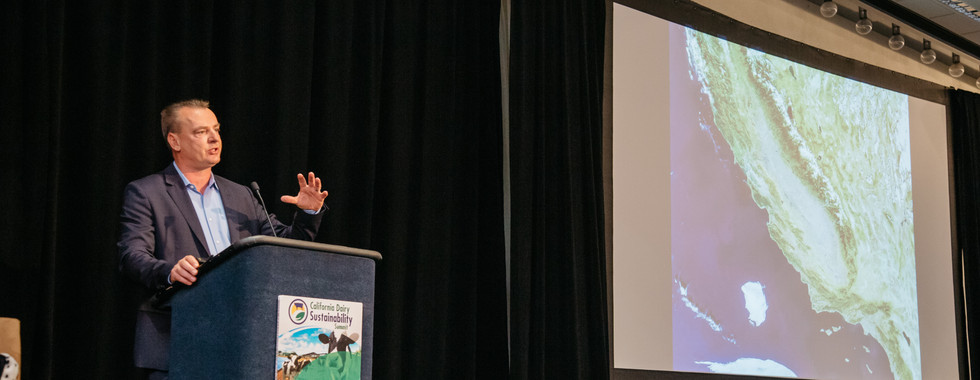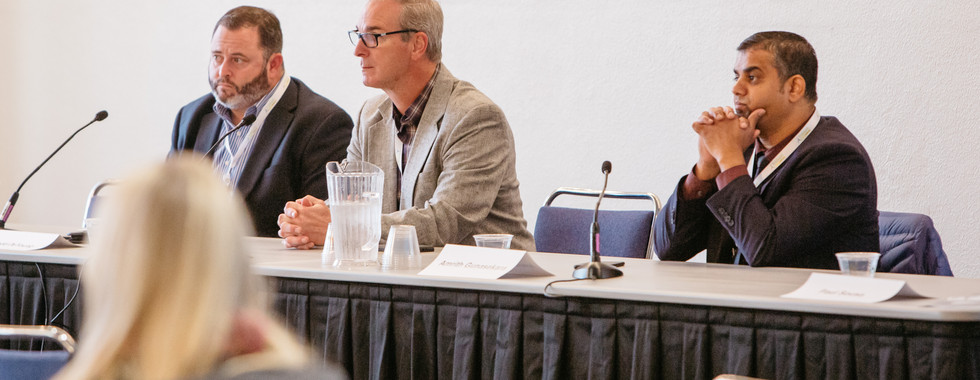First-ever California Dairy Sustainability Summit builds momentum for continued collaboration
- Dec 10, 2018
- 3 min read
Updated: Dec 11, 2018
The California Dairy Sustainability Summit took place November 27 -28 in Sacramento and was a first-of-its kind success for the state’s dairy industry, building momentum to further improve environmental and economic sustainability. With more than 660 registered attendees, including 201 dairy farmers, the event brought together diverse audiences to recognize partnerships, celebrate achievements, and address challenges. Attendees included state and local regulatory officials, university researchers, technology and service providers, utility providers, and dairy representatives from across the U.S. and other countries.

The agenda provided research-based context for the role dairy plays in a nutritious and sustainable global food system, putting environmental impacts in perspective and addressing economic challenges. More than 75 speakers provided a comprehensive analysis of opportunities and barriers to all aspects of sustainability. Speakers included dairy farmers, who spoke candidly about their efforts to address the challenges they face. Dr. Frank Mitloehner of UC Davis provided the opening keynote, which demonstrated how American dairy farms already lead the world in sustainable dairy farm practices and how further increasing production efficiency will remain critical to reducing livestock emissions globally.
California remains the leading dairy production state, while it continues to lose farms due to economic challenges. Meanwhile, the state is leading the world in the development of innovative and sustainable dairy farm practices: reducing methane emissions, protecting air and water quality, producing clean, renewable energy, and conserving resources through increased efficiency.
Speakers included California dairy farmer Stephen Maddox Sr., who has been recognized nationally for sustainable practices on his family’s farm. He stressed how on-farm environmental improvements must be economically feasible, including incentives from state and local government.
Through interactive panel discussions, state officials acknowledged the regulatory burdens that the state’s dairy farmers already face, and they recognized that achievements in environmental protection to date have largely been made with help from incentive programs. These types of programs will continue to be critical as the state and its farmers work to further improve the environment. Executive Director of the San Joaquin Valley Air Pollution Control District, Samir Sheikh emphasized the importance of incentive programs to help farmers implement new, cutting-edge and expensive technologies to tackle air-quality challenges.
“I’ve learned about different regulations as they’re unfolding, and how we can deal with them and how there’s cooperation between the regulators and the industry,” said California dairy farmer Noel Rosa. “I really like the fact that [regulatory officials] have been honest about understanding the difficulties that the dairy industry is having and trying to address those and improve the environment.”
A tremendous example of advancement currently under way is the effort to achieve unprecedented reductions in dairy methane emissions. Dairy Cares debuted its new video, Climate-Smart Dairy at the event. The video highlights how dairy farmers, technology providers, state officials, and researchers are working together to develop climate-smart practices, mirroring the broader collaboration that happened onsite at the California Dairy Sustainability Summit.
“I was encouraged by the fact that there were enough forward-thinking producers that were encouraged to come and check it out,” said California dairy farmer Simon Vander Woude, who serves as chairman of California Dairies, Inc. “There’s a lot of progressive farmers out there who really want to make the most out of what they’re doing.”
California dairy farmers will continue to work collaboratively to address challenges. One key theme from the event was that environmental solutions must allow farmers to economically sustain their family farms here in California, while also creating a model that the rest of the world can follow.
“To me, sustainability is comprehensive and holistic,” Vander Woude said. “It’s doing the right thing for the right reason, for the right outcome. It has to be economically sustainable, environmentally sustainable, and it just has to be feasible. Sustainability is the only way we’re going to keep doing what we do because we do have limited resources, whether those are natural resources, financial resources; they’re all resources that we’ve been blessed with, and we have to figure out how we are going to use them in the right way.”
With its tremendous success, organizers are exploring the possibility of a future event. To sign up for updates, visit CADairySummit.com.
To catch a glimpse of the exciting event action, check out the photos below.
California dairy farmers will continue to work collaboratively to further improve economic and environmental sustainability.






















































































Comments